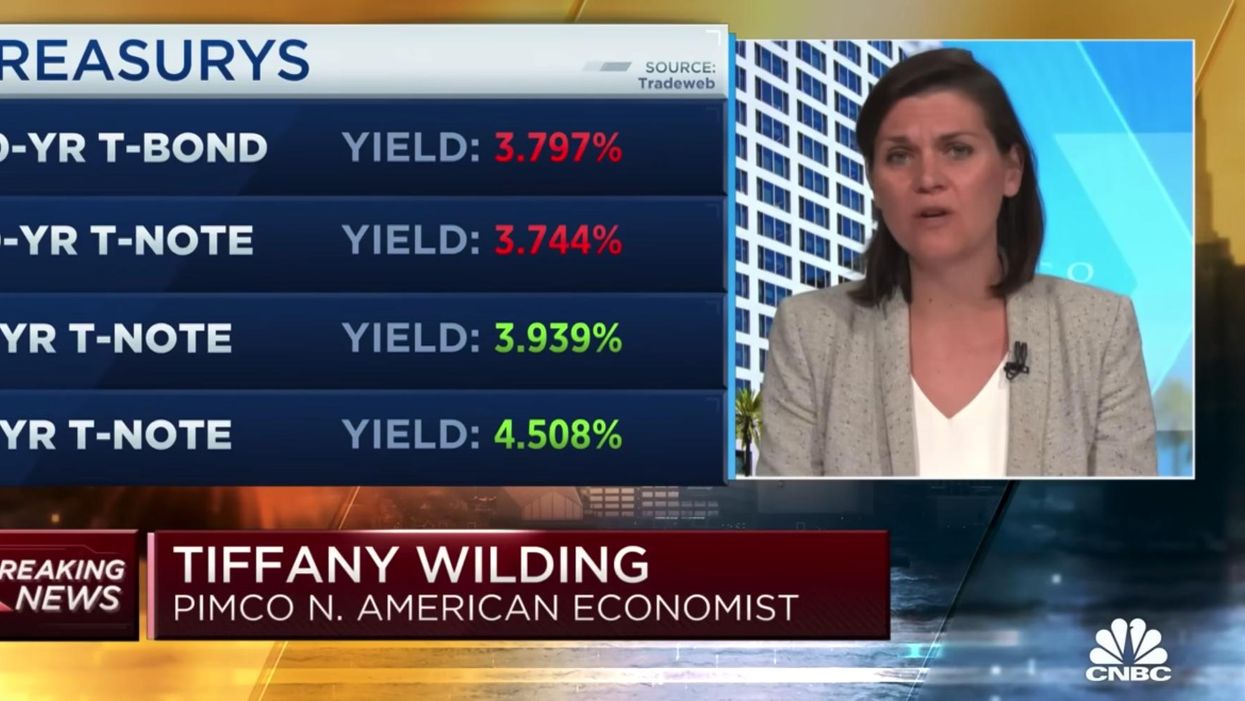
Image source: YouTube screenshot

The GDP grew at a 2.9% annual rate in the third quarter, a revised analysis from the Bureau of Economic Analysis showed on Wednesday.
Democrats and supporters of President Joe Biden said the data proved the economy is not headed for a recession. But a prominent economist explained that once you dig into the data, the picture is not as bright they claim.
Tiffany Wilding, an economist who works for investment management giant PIMCO, explained on CNBC's "Squawk Box" that the report is deceiving because certain measurements skew the data.
"There is a little bit of noise that you have to take into account because inventories and trade numbers can obviously be very volatile. If you dig into the details of the quarter three GDP numbers, what you find is when you exclude those more volatile categories, growth was pretty subpar," she said.
"For the year as a whole — excluding those categories, we call that 'final domestic demand' — growth is sub-1%," she explained, noting that 2021 saw "robust" growth of 5%.
"Core growth has decelerated quite a bit and that’s even before you're really starting to feel the effects of [Federal Reserve] policy and Fed tightening because that works with a lag," Wilding went on to say. "So we do think the economy slips into recession next year under the weight of the financial conditions tightening."
We expect the U.S. economy to slip into a recession next year, says PIMCO's Tiffany Wildingwww.youtube.com
Indeed, as Obama administration economist Jason Furman explained on Twitter, the BEA's headline figure of 2.9% growth is a "less accurate" figure because it does not show a holistic view of the economy.
In fact, economic growth was revised down, he noted.
\u201cEconomic growth for Q3 was revised down to a 1.6% annual rate (based on spending and income data), originally was 2.6% (based only on spending data). Following a slight contraction in the first half of this year this leaves output a little below CBO's pre-pandemic forecast.\u201d— Jason Furman (@Jason Furman) 1669817246
Economists have repeatedly warned of a recession because, among other reasons, the Federal Reserve's actions to combat inflation. Conventional economic wisdom dictates that aggressively raising interest rates will result in a "hard landing," economic geek-speak for a recession.
Fed Chairman Jerome Powell, however, indicated on Wednesday the Fed would continue smaller interest rate hikes next month, though he believes their actions to combat inflation have proved mostly ineffective thus far.